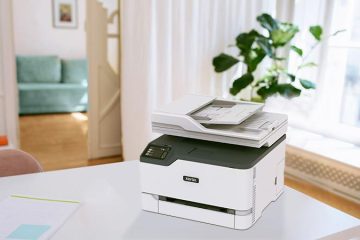Podcasting in a studio comes with professional standard equipment that will provide quality results. Studio environments remove background noise, which makes for a professional listening experience. Professional acoustics also improve voicing and overall sound quality. Here are things to know before renting a podcast studio:
Equipment Quality and Availability
When evaluating acoustic quality, search for high-quality and dedicated interfaces and mixers that provide a minimal loss of signal quality. The podcast studio should have proper headphones for monitoring the sound quality and ergonomic chairs for sitting for long periods. Ask if they have pop filters and microphone stands for better sound and better ergonomics. Observe their computer configuration, particularly the software capabilities, as they record multiple tracks simultaneously and edit them where necessary. Ask whether there are any accessories such as audio compressors, equalizers, or digital audio workstations (DAWs) that might be useful for podcasting.
Studio Acoustics and Soundproofing
Room acoustics and noise control solutions are key elements that contribute to making good podcasts. Sound management reduces the echo and bouncing of sound within a room to produce clear and quality results. Foam panels, bass traps, and diffusers are widely used sound absorbents that are placed on walls and ceilings. They help to manage reverberation and limit outside noises. Soundproofing elements help minimize noise that may find its way into the recording area. This can range from having double-walled construction, sound-absorbing doors, and floating floors in an effort to reduce vibrations. Commercial ventilation systems are usually designed to be as quiet as possible, maximizing air quality while minimizing noise. Windows in the studio, if any, can be either double-glazed or soundproofed in some manner to avoid external noise.
Studio Size and Capacity
The size of the recording space should fit your podcasting equipment and all people involved in the process. There should always be enough chairs for the host, the guest, and anyone else involved in the podcast creation. The studio must have adequate space to accommodate related equipment such as microphones, mixers, and monitors. Keeping participants at an appropriate distance from each other prevents one participant’s audio from overlapping with that of another participant. Some studios have designated areas for production work or holding areas for guests. It is also necessary to ascertain the studio’s maximum occupancy capacity so that your audience or other team members can be present during the recording. Check whether the environment can accommodate different camera positions if you want to film your podcasts.
Technical Support Availability
Some studios have technicians who can assist with equipment, make adjustments, and help during the recording. These experts are usually around during your session just in case any complications occur. Remote assistance can also be arranged over a phone call or video call. Most studios offer equipment manuals and tutorials that can act as self-help guides for clients. This can be useful for podcasters who have some experience creating podcasts and want to work independently. While some facilities are only able to assist during regular business hours, others are available round the clock, especially for emergency purposes or for those who record late at night. In some cases, premium studios may come with a producer or sound engineer as part of the deal.
File Delivery and Storage Options
Most studios provide direct file transfer through a secure website, which enables you to access the recordings instantly. Some studios offer the option of a physical backup, such as having it on a USB or even an external hard drive. There may be options for file compression as well as configuring different audio formats to suit your various projects. Most studios allow you to upload your files to their servers for a limited time. High-end facilities even offer the option of using their own file management system to view your podcast episode. These options should be agreed upon with the studio beforehand to fit the post-production and storage needs in question.
Rent a Quality Podcast Studio
Book a studio well in advance and clarify any specific details with the studio manager. To have more time for recording, try to get acquainted with the equipment in advance. Get there early to set up all of the equipment you will use in your session beforehand. Start your search for a quality podcast studio today.



